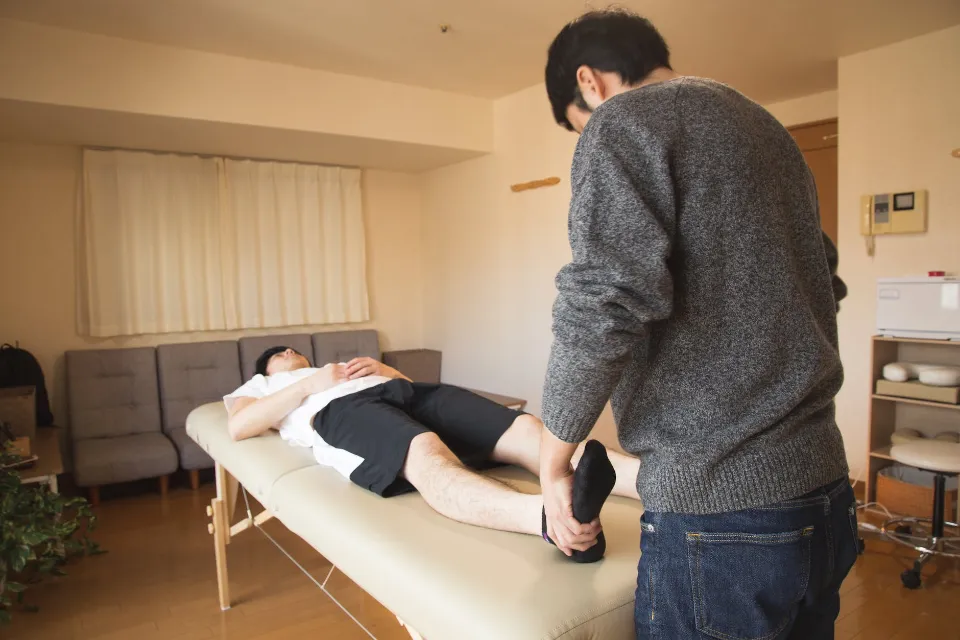In the US, 10,000 people turn 65 every day, indicating that our society is aging. It’s ironic that so few people want to discuss getting older. However, people in this older patient population face particular health risks that are frequently avoidable, like hip fractures from falls.
Recovery from a hip fracture can take up to a full year. The hip fracture-related pain typically goes away four to six weeks after the injury. It can take up to 12 weeks for the bone to heal completely. Some individuals can reclaim their pre-injury level of activity by six months.
The recovery from hip fractures is covered in this article. The various hip fracture treatments, including surgery, are also explained, along with the recovery process.
Why Prompt Hip Fracture Treatment is Important?
Hip fractures in adults over 60 are frequently brought on by weakened bones from osteoporosis, smoking, or long-term steroid or alcohol use. Most fractures result from falls that were at ground level, which means the victim had both feet on the ground when they fell.
The main culprits are usually:
- Pets: Patients may trip over the family cat while stepping on it unknowingly or trip and fall while walking their dog.
- Walking in the dark or when sleepy: Some patients attempt to navigate to the bathroom in the middle of the night without a light and trip over objects on the floor in an effort to avoid waking their partner.
- Curbs, steps, and throw rugs: As we get older, our strides tend to shorten, making it simpler to trip over small, stationary obstacles. The fact that more people are falling over while walking and looking at their smartphones hasn’t helped matters either.
The femur bone, at the top of the thigh, is the site of numerous hip fractures that necessitate surgery. Too often, patients try to “wait out” the pain instead of seeking immediate treatment – even if they can’t bear weight.

The consequences of delaying treatment can be severe and even fatal. Every patient with a hip fracture brought on by a fall needs to have it fixed within 24 to 48 hours. An individual’s hospital stay can be shortened with timely medical intervention, such as surgery and rehabilitation. This can be especially beneficial to older people, as it can help them avoid:
- Prolonged bed rest, which can become disorienting for older people
- Blood clots
- Pneumonia
- Bedsores
In hip fracture surgery, surgeons will either repair the fracture or replace all or part of the hip.
How Long Does It Take a Hip Fracture to Heal?
A broken hip may require many months to fully heal. The majority of fractures heal in 10 to 12 weeks, but muscle strength and mobility recovery can take much longer. Typically, people get close to their full recovery within 6 months of the injury, but it can take up to a full year to achieve as much improvement as possible.
However, those who suffer a hip fracture shouldn’t wait months or longer to begin aggressive therapy. The likelihood of regaining function gradually decreases over time; the greatest gains are made in the early stages of recovery.
On the plus side, many individuals who have experienced a hip fracture are able to resume their regular activities and return to their pre-injury level of activity. Unfortunately, not everyone is able to make that type of recovery.
Unfortunately, less than 25 percent of people who break their hips go on to die within a year of the accident. While this group tends to represent the frailest people who break a hip, it is a startlingly large number.3 Regaining mobility, strength, and balance affects one’s ability to return to full functioning.
Factor1: Balance
In order to regain function and reduce the risk of further injury, the balance must be regained. Activity depends on balance, and a loss of balance is frequently the cause of a decline in function. The use of ambulatory aids (canes or walkers) can be helpful, but regaining proprioception and balance can help restore activity.
Factor2: Mobility
Joints must move in order to operate properly. Even though the muscles that surround a joint that is immobile may be strong, they cannot perform as intended if the joint is not moved. Scar tissue development, deformity, implanted hardware, and fracture healing can all reduce mobility.
Factor3: Strength
After breaking one’s hip, regaining muscle strength is crucial. The trauma of breaking a hip bone also significantly impairs muscle function, unlike the recovery from hip replacement surgery, where muscle damage is minimal. It is essential to get the muscles moving as soon as possible after surgery in order to regain muscle function and avoid potentially permanent atrophy of the muscle tissue.

How to Recover Quickly from a Hip Fracture?
Depending on their level of mobility and fitness, a doctor will give them a customized recovery program to continue at home.
Wound Care
To care for their wound at home, a person should:
In addition to adhering to a healthcare professional’s instructions, keep the wound area dry and clean. For 7–10 days, a wound dressing shouldn’t need to be changed. Take a shower or bath only as directed by your doctor. A doctor will give advice on how long a patient should wait before washing, even though wound dressings are typically waterproof.
Diet
Proper nutrition can help improve the outcome of surgery, especially in older people. In order to prevent stress on the healing joint, a person should refrain from alcohol consumption and work to maintain a healthy weight during recovery. A doctor may advise a patient to take vitamin and iron supplements. A doctor or dietitian should be consulted by the public regarding their dietary needs.
Medication
Patients recovering from hip surgery should take all prescribed medications exactly as directed by their doctor. These may include:
- Opioid pain medication
- Non-opioid pain medication
- Stool softeners
- Blood thinning medication
- Anti-nausea medication
Final Thoughts
After a hip fracture operation, recovery times differ from person to person. moving around, balancing, etc., will affect recovery time. You can still take some helpful actions to react quickly, though. Recovery usually involves exercise, pain medication, ice and a rehabilitation program of elevation to reduce swelling. Symptoms of an infection or blood clot should be reported to a doctor right away.
FAQs
How Serious is a Hip Fracture?
A hip fracture is a serious injury, with complications that can be life-threatening. Age increases the risk of hip fracture. Age-related bone thinning (osteoporosis) increases risk.
What is the Most Common Hip Fracture?
Intertrochanteric and femoral neck fractures are the most common types of hip fractures. Rarely occurring, high-velocity events frequently lead to femoral head fractures. locations on the femur (thighbone).



